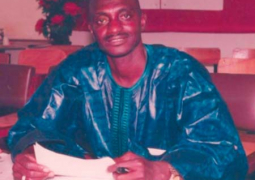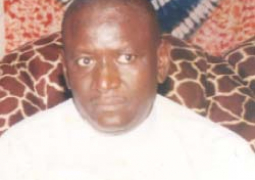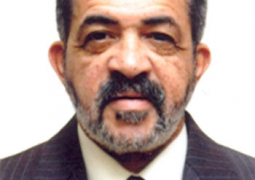The Global Action Week on Education kicks off on
The Gambia is putting together its own version of the Big Read book (a book of short stories about education by leading figures, Nobel prize winners and award winning authors) as part of activities making the event says a media dispatch from education for all campaign country office.
The Big Read is the Global Campaign for Education's activity for Action Week this year (20th - 26th April 2009).
It will feature stories and testimonies by international and national celebrities and participants in literacy classes.
In The Gambia the national highlight event will take place in May at
The Big Read is actually slated for April 20th to 26th this year.
10 million people are expected to read stories from Nelson Mandela, Natalie Portman, Desmond Tutu, Alice Walker, Chimamanda Ngozi Adichie, Angelique Kidjo and others the release added.
Some ten million people are expected to take part in The Big Read, to demand urgent action for the one in four women who are illiterate. Nelson Mandela, Desmond Tutu, Angelique Kidjo and Alice Walker and others have contributed stories to The Big Read - a book aimed at challenging the global education crisis.
The Big Read has been distributed in more than 100 countries free of charge to children, parents and adult learners. All those that take part in The Big Read will add their name to a declaration - demanding that all governments deliver a good quality free, public education.
"Learning to read and write changes lives; it means jobs, money, health and dreams fulfilled," commented Her Majesty Queen Rania of Jordan, who is the Honorary Chair of Global Action Week, 2009.
There are 774 million illiterate adults, 75 million children out of primary school and 226 million children not in secondary school. Nearly all governments have promised 'Education for All' by 2015, yet the current global financial crisis threatens to worsen the global situation and leave millions more without an education.
"The world's poorest did not create this financial crisis, yet they stand to pay the highest price. Budget squeezes in education are threatening to reverse progress made in recent years. We cannot allow illiteracy to rise. The rich world has a responsibility to education - one of the best investments the world can make to combat poverty. We are calling for $16 billion, a small fraction of the cost of the bank bailouts," says Assibi Napoe, Chair of the Global Campaign for Education.
The Big Read is taking place across the world, in homes, schools, government buildings and public events. The first Big Read event took place in
The Global Campaign for Education, founded in 1999, brings together major non-governmental organizations (NGO5) and teachers' unions in more than 120 countries. GCE promotes access to education as a basic human right and raises public awareness to create the political will for governments and other leaders in the international community to fulfil their promises to provide at least a free, public basic education for all children. Every April GCE organizes a week of campaigning on education called Global Action Week. This year's Action Week is called 'The Big Read' 20th - 26th April
The state of education in
- There are 33 million children out of school in
- 50% of children up to the age of 12 in
- Two-thirds of all children arrive at primary school under-nourished or with a disability that will likely impair their education achievement throughout their lives.
In Sub-Saharan Africa 22 countries offering secondary education to less than one-quarter of the school-aged population.
Read Other Articles In Article (Archive)




